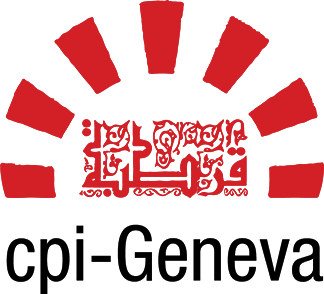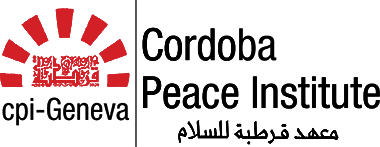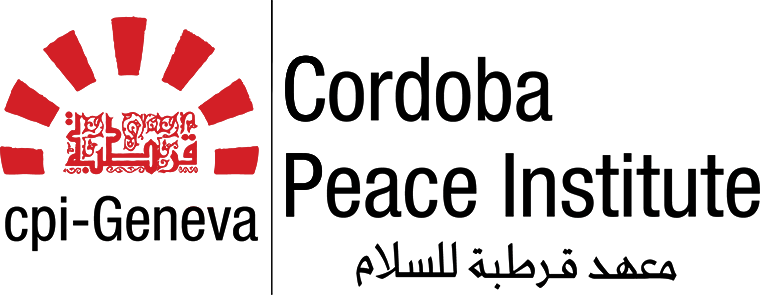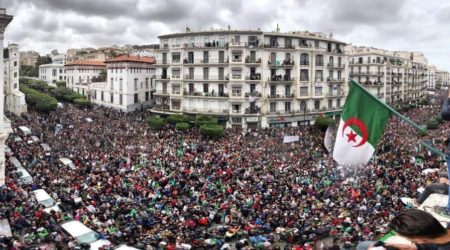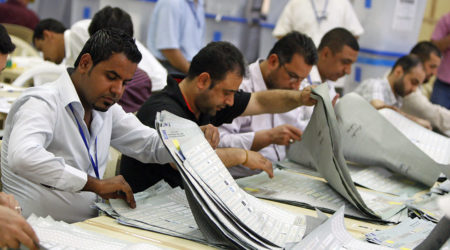Hazem Salem: Going for the DHL Package
The title is interesting because there is a song that says “WHO LET THE DOGS OUT?”
This piece: “WHO LET THE JIHADIS OUT?” by Hossam Bahgat comes basically to say that SCAF (not Morsi) is the one that let the Jihadis out.
Bahgat said: “MadaMasr’s investigation shows that Morsi released 27 Islamists during his rule. The military council released over 800.”
Here, the point for Bahgat was not defending Morsi, but it is to point to the abuse of the issue and the deliberate misinformation by both the Minister of Interior and the media (local and international – as he pointed to Associated Press) in this regard.
Bahgat used basically the case of Nabil Mohamed Abdel Meguid al-Maghrabi to make his first case against the minister of interior.
Bahgat said: “Maghrabi’s name, alongside those of other suspects, was interesting. Maghrabi was detained in 1979 under the state of emergency, imposed since 1967. Two years later he was accused of involvement in the assassination of President Anwar Sadat, although he was already in jail. Now the minister was suggesting the septuagenarian former jihadi had resumed his activities and recreated his organizational links after more than three decades in prison.”
When Bahgat criticized a report published by the Associated Press on December 3, filed by bureau chief Hamza Hendawy, he pointed that the information in the report by AP that Morsi released Jihadis as “Morsi issued nine pardons starting soon after he was inaugurated, releasing some 2,000 people” was incorrect because these 2000 were basically from the youth of the revolution detained during the 17 months of SCAF rule (February 2011 till July 2012). They were not radical Islamists. Later, Bhagat pointed that the Jihadis released by Morsi were few compared to those released by SCAF.
Radicalization by Detention or Pacification by Release
At the time of Mubarak’s removal in February 2011, most imprisoned Islamists were being held pursuant to administrative detention orders issued under the state of emergency, which had been in force since Sadat’s assassination.
The issue that could be basically argued for the pattern of the structure of the actions by SCAF releasing the Islamists (who were detained for unlimited periods of time without charge or trial based on an Interior Minister decision that they represented a threat to public security). This can be summarized in this phrase: “Radicalization by Detention or Pacification by Release”.
This means that when the Islamists are detained, they might go towards more and more radicalization as seen now for the Brotherhood since June 30, while they were pacified after January 25, 2011 because the argument of the Brotherhood (and SCAF) to the Jihadis was that the “militant path” is not the best one, and the engagement in the political game (as the Brotherhood did since the 1980’s was the better way”.
The argument went to the very opposite extreme after June 30; the Jihadis would say now to the Brotherhood that “your path of political engagement in a democratic process did not save you from a coup. Therefore, you should have adopted the use of force as we did a long time ago and you should go for that now as democracy and peaceful politics are pointless”.
Hence, the pacification by release was successful in the period between February 2011 and July 2012, where the Jamaa Islameyya established “the Construction and Development Party” and became engaged in pacifist political action.
On the contrary, the radicalization continued for the more moderate group (the Brotherhood) after June 30 as the group became labeled as a “terrorist group”, proving the argument that says: “If you call them terrorists, they will become terrorists for real”!
The pacified ones do not carry out acts of terror while they are “free” because the political space is “open”, while the radicalized ones could inspire violence by just being “behind bars” when the political space is “closed”.
This policy (of pacification) was spotted by Bahgat when he said that “SCAF relied on them (the released Islamists) to calm the situation in the street by pulling their supporters out of Tahrir Square and supporting the constitutional amendments and the electoral processes that the generals pushed forward during what was known as the transitional period. In exchange, the Islamist groups may have asked that their jailed members and supporters be released.”
Bahgat used another example to portray this policy. He said: “Mohamed Abdel Reheem al-Sharqawi was one of the detainees released at this time. Administrative detainees, such as al-Sharqawi, were an easy problem for SCAF and the Shafiq government to solve. All that Shafiq and his Interior Minister Wagdi had to do was open the doors and order them to leave, given the lack of any charges or sentences against them. This policy continued when protests forced SCAF to form a new government in March 2011, with Essam Sharaf taking Shafiq’s place and Mansour al-Essawy replacing Wagdi as minister of interior.”
According to Bahgat, Tantawi pardoned 103 Islamist convicts, belonging to al-Jihad and Jama’a al-Islamiya, the Egyptian Hezbollah (not related to the Lebanese party which holds the same name), the Wa’ad organization, the Survivors of Hell group and other smaller and lesser known jihadi groups and cells. Thus, the final number of prisoners who were let out of prison before Morsi became president reaches 858.
But, Morsi issued pardons, but not to whom you think, Bahgat said. Morsi basically pardoned the youth who were arrested by SCAF; also to pacify them and to “buy legitimacy”.
The simple equation here would be: serving Human Rights gives legitimacy and challenging Human Rights radicalizes the situation. The current government goes strongly for the second option, while those of SCAF and Morsi were sometime going for the first one.
The DHL Package
Taking the arguments of Hossam Bahgat into account, one can say that the idea for the democracy activist and the Human Rights defendants as well as the rule-of-law advocates goes like this:
To deliver Security and Stability to a country, a DHL package is inevitable.
DHL here means Democracy – Human Rights – Rule-of-Law
This package is the one that buys – brings – sustains Legitimacy through the integration – pacification – inclusion of all ideologies and political identities into the Political System.
It is Legitimacy through Consent
To deliver Security and Stability to a country, without DHL package, coercion, inhibition, censorship and generally Authoritarianism will be the way (without a real delivery of Security and Stability in the end).
The coercion, inhibition, censorship, exclusion (sometimes eradication) and generally Authoritarianism package is the one that demolishes – shatters – ends Legitimacy. It fails in delivering Security and Stability because of radicalization – inciting violence – social division – polarization – disintegration – hatred – confrontation and advocating the use of verbal, societal, physical and militant force by all ideologies and political identities in the Political System.
It is Lack of Legitimacy because of coercion, inhibition, censorship, exclusion (sometimes eradication) and generally Authoritarianism.
Hazem Salem
4 March 2014
WHO LET THE JIHADIS OUT?
Hossam Bahgat
Mada Masr, 16 February 2014
Towards the end of November, Minister of Interior Mohamed Ibrahim held a press conference “to expose the details of terrorist groups arrested recently by security bodies.” Ibrahim identified a “terrorist focal point” that included 39 terrorists and that was planning a number of attacks on the police, the army, some vital establishments, and churches. The dangerous group, the minister announced, was “led by Nabil Mohamed Abdel Meguid al-Maghrabi, an inmate released during the rule of ousted President Mohamed Morsi.”
Maghrabi’s name, alongside those of other suspects, was interesting. Maghrabi was detained in 1979 under the state of emergency, imposed since 1967. Two years later he was accused of involvement in the assassination of President Anwar Sadat, although he was already in jail.
Now the minister was suggesting the septuagenarian former jihadi had resumed his activities and recreated his organizational links after more than three decades in prison.
MadaMasr’s investigation shows that Morsi released 27 Islamists during his rule. The military council released over 800.
When the minister blamed Maghrabi by name, it was one of the first times a state official publicly announced the name of a jihadi released after the revolution and connected him with the planning of terrorist attacks – previously, only anonymous sources and broad statements were made. It was also probably the first direct accusation of this kind against Morsi, linking his release of jihadis with subsequent terrorist attacks and bolstering the argument that the Brotherhood, even when in office, supported religious extremism.
But the minister’s statement contradicts reality.
Maghrabi left prison on June 5, 2011, a year before Morsi was elected president, thanks to a pardon issued for health reasons by former Prosecutor General Abdel Meguid Mahmoud, who was appointed by ousted President Hosni Mubarak and sacked by Morsi in November 2012.
Perhaps the minister misspoke. But statements and leaks by the security services in the media over the last year have consistently suggested that Morsi and his Muslim Brotherhood companions, during their one year in power, irresponsibly pardoned hundreds of jihadis thrown in jail by Mubarak. These accusations started being leveled against Morsi in the media in his last months in power, but escalated significantly after his ouster as additional evidence of the Brotherhood’s involvement in the growing number of terrorist attacks and explosions across the country. They have been repeated by many media outlets.
A report published by the Associated Press on December 3, filed by bureau chief HamzaHendawy, featured leaks from “military and security sources” regarding an initial investigation into Morsi and the Brotherhood’s ties with jihadi organizations. The AP story read: “The generals who ran Egypt for nearly 17 months after Mubarak’s ouster also freed jailed militants, including the brother of al-Qaeda leader Ayman al-Zawahiri, Mohamed. The pace of pardons, however, picked up significantly after Morsi took office. Morsi issued nine pardons starting soon after he was inaugurated, releasing some 2,000 people.”
But an analysis of publicly available data on released prisoners since Mubarak left office shows a radically different picture. Morsi pardoned hundreds of prisoners, but they were mostly protesters who had been sentenced in military trials. Morsi issued pardons for some high-profile militants accused in terrorism cases, but most of the pardons of jihadis and Islamists took place during the rule of the Supreme Council of the Armed Forces, from February to October of 2011. MadaMasr’s investigation shows that Morsi released 27 Islamists during his rule. The military council released over 800.
After Mubarak … a new chapter
At the time of Mubarak’s removal in February 2011, most imprisoned Islamists were being held pursuant to administrative detention orders issued under the state of emergency, which had been in force since Sadat’s assassination.
This meant that they were detained for unlimited periods of time without charge or trial based on an Interior Minister decision that they represented a threat to public security. According to human rights groups, the majority of these administrative detainees appealed the detention orders and obtained judgments ordering that they be released from the State Security Courts established under the Emergency Law itself. But the rulings were never enforced. The Interior Ministry would hastily issue new detention orders against these detainees without freeing them.
The Interior Ministry continuously refused requests by rights groups, MPs, the media and the United Nations that it make public the total number of detainees, claiming that the number fluctuated as some detainees were released and others imprisoned.
In 2006, General Mahmoud Wagdi, the assistant interior minister for prisons, issued an angry response to a report issued by the state-affiliated National Council for Human Rights which suggested that there are 25,000 political detainees in Egypt. Wagdi said on television that the true number “does not exceed 4,000.”
Shortly before the January 25 revolution in 2011, estimates by human rights organizations and Islamist lawyers put the number of detainees held under the Emergency Law at somewhere between 5,000 and 10,000, most of them Islamists. Few of these detainees were in leadership positions in jihadi groups.
The vast majority were rank-and-file members or simply sympathizers who were swept up in the state’s crackdown on militants throughout the 1990s. Lack of incriminating evidence led security agencies to hold them in administrative detention without referring them to trial.
Wagdi was appointed interior minister in the last Cabinet formed by Mubarak at the end of January 2011. A few days after Mubarak’s ouster, Wagdi announced that the Interior Ministry was adopting a new policy under which all political detainees would be released.
The announcement — based on an order given by Ahmed Shafiq and with the blessing of the ruling Supreme Council of the Armed Forces — appeared to be an attempt to placate public anger against the police and suggest that a new era had begun.
Less than a month after Mubarak’s ouster the Interior Ministry announced that “In a continuation of the Interior Ministry’s current policy, one of whose pillars is aimed at examining and reviewing the files of all political and criminal detainees, and in reaffirmation of the Ministry’s determination to respect judicial verdicts and protect human rights and fundamental freedoms …[the Prisons Authority] has released 904 criminal detainees and 755 political detainees since last February.”
It was clear that the political detainees’ release was carried out according to political orders; the Wadi al-Natrun prison warden at that time, General Adly Abdel Sabour, told newspaper Al-Shorouk in 2013 that he received a telephone call from State Security Investigations officials after his return to the prison following the revolution.
“They informed me during the call that all political detainees’ cases had been settled and that that they were all to be released. The decision was applied to all political detainees, including the Muslim Brotherhood leaders who had escaped.” Morsi was among those.
The policy of releasing political detainees might also have been an attempt to calm the situation inside prisons and prevent further break-outs. According to official statements, more than 21,000 prisoners escaped in January and February 2011 (most of them were re-arrested and less than 3,000 remained at large in mid-2013). In addition, the releases may have been part of the détente reached between the Supreme Council of the Armed Forces (SCAF) and the Muslim Brotherhood and other Islamist movements. SCAF relied on them to calm the situation in the street by pulling their supporters out of Tahrir Square and supporting the constitutional amendments and the electoral processes that the generals pushed forward during what was known as the transitional period. In exchange, the Islamist groups may have asked that their jailed members and supporters be released.
Veteran Islamist lawyer Montasser al-Zayyat says that SCAF “was relatively weak when it first assumed power and was facing considerable opposition from revolutionary forces, compared to the harmony that marked its relationship with Islamist movements. The move to release Islamist detainees should, in my opinion, be seen in the context of this harmony.”
“You can go home”
Mohamed Abdel Reheem al-Sharqawi was one of the detainees released at this time. Sharqawi, an Egyptian-Pakistani dual national, was working as an electrical engineer in Pakistan. He says that the Pakistani authorities kidnapped and forcibly deported him to Egypt in 1995. Sharqawi remained in detention without charge or trial under the Emergency Law for more than 15 years, during which time he was moved between Egyptian prisons, the last of which was the notorious Wadi al-Natrun located in the middle of the desert. Sharqawi says he was tortured several times during interrogation at the hands of State Security Investigations to make him confess to having connections with jihadis in Afghanistan and Pakistan.
In a legal statement about his experience in detention made to his lawyers upon his release, Sharqawi — who is currently suing the Egyptian government for compensation for his detention and torture — says that he still has no idea why he was released after 15 years of detention, just as he does not know why he was arrested in Pakistan and detained in Egypt.
“On March 17 [2011] I was suddenly released,” said the 63-year-old Sharqawi in his statement. “I was suddenly released. The guard came to my cell and said that I was free to go home. I was shocked. After all this time they decided that I should be free but they did not explain what had happened or say they had made a mistake. They just took me and opened the door and left me in the middle of the desert. They even took my money away from me. I had to find my own way home to my family. The Egyptian officials did not give me any help and did not apologize. They released me without even giving me a piece of paper to say that I had been released.”
Administrative detainees such as Sharqawi were an easy problem for SCAF and the Shafiq government to solve. All that Shafiq and his Interior Minister Wagdi had to do was open the doors and order them to leave, given the lack of any charges or sentences against them. This policy continued when protests forced SCAF to form a new government in March 2011, with Essam Sharaf taking Shafiq’s place and Mansour al-Essawy replacing Wagdi as minister of interior. When — for the first time in 31 years — the state of emergency ended in May 2011, SCAF decided not to extend it. The few hundred remaining detainees under Emergency Law were all quietly released in the weeks that followed.
Military courts give Islamists a second chance
However, the bigger problem SCAF faced was the smaller number of jihadis who had been sentenced to jail or to death (death sentences were not carried out as part of a truce between security bodies and armed Islamist groups, most of whom renounced violence at the end of the 1990s).
In some cases, the public prosecutor suddenly issued orders that sentences be suspended for health reasons, as in the case of Nabil al-Maghrabi.
Both Khairat al-Shater and Hassan Malek, Muslim Brotherhood leaders and purportedly the group’s main funders, were serving a seven-year sentence for money laundering and aiming to finance the group. They were granted pardon due to unspecified health reasons.
SCAF allowed others to file grievances against prison sentences or death penalties that had been handed down by emergency or military courts, following trials in absentia in many of the cases. SCAF accepted these grievances promptly and granted retrials and, in most cases, acquittals.
This, for example, is what happened with Mohamed al-Zawahiri, the brother of the Al-Qaeda leader, who had been sentenced to death by a military court for conspiracy to commit terrorist acts and seeking to topple the regime. Zawahiri was arrested in the Emirates where he worked as an engineer in 1999 and was deported to Egypt. In 2011, he was released; a military court overturned the earlier verdict and acquitted him. Zawahiri was arrested again after the removal of Morsi and he is currently being held under investigation.
In 2011 and 2012, military courts were busy acquitting defendants that military courts had sentenced to prison or death throughout the last 20 years of Mubarak’s rule.
The “A-list” of pardoned jihadis included Mohamed Showky al-Islambouli from the Jihad organization, the brother of Sadat assassin Khaled al-Islambouli; MostafaHamza, a Jama’a al-Islamiya’s leader sentenced to death for plotting an assassination attempt on Mubarak in Addis Ababa in 1995; and TahaRefai, another Islamic Jama’a leader who was sentenced to death in absentia in 1992 for belonging to a banned group and seeking to overthrow the regime.
The phenomenon continued after Morsi became president and now-Field Marshal Abdel Fattah al-Sisi was appointed minister of defense, with responsibility for approving all military rulings. For instance, in November 2012, the Ministry of Interior ordered the release of Ahmed Salama Mabrouk, one of the founders of Egyptian Islamic Jihad in the 1970s. His release, three months after Sisi’s appointment as general commander of the Armed Forces, could not have taken place without direct approval from the defense minister. A front-page story in Al-Shorouk on December 22 quoted a memo by the Interior Ministry’s National Security Sector (known under Mubarak as State Security Investigations) that described Mabrouk as the leader of the AnsarBeit al-Maqdes militant organization, which has claimed responsibility for a number of terrorist attacks in recent months. The story incorrectly claimed that Mabrouk had been granted a presidential pardon by Morsi.
Tantawi’s pardons
Following the release of those detained under the Emergency Law and the retrials and acquittals, SCAF found more than 100 convicts serving final, un-appealable sentences.
The first presidential pardons were issued on March 10, 2011 and signed by Field Marshal Hussein Tantawi, Mubarak’s defense minister, who ruled the country in his capacity as head of SCAF. The decision freed 60 convicts, all of whom were Islamists, described in the decision as “political prisoners” in a rare admission by the state of the politicization of terrorism trials under Mubarak.
The most prominent among the 60 pardoned convicts were siblings Tarek and Aboud al-Zomor, convicted of Sadat’s assassination. The media had reported that they had refused to escape Tora prison along with other prisoners during the revolution.
In total, Tantawi pardoned 103 Islamist convicts, belonging to al-Jihad and Jama’a al-Islamiya, the Egyptian Hezbollah (not related to the Lebanese party which holds the same name), the Wa’ad organization, the Survivors of Hell group and other smaller and lesser known jihadi groups and cells.
Adding this number to the 755 political detainees under Emergency Law, whom the Ministry of Interior released in January and February 2011 (and who were probably mostly Islamists), the final number of prisoners who were let out of prison before Morsi became president reaches 858. This number does not include those jihadis who received medical pardons from the public prosecutor or acquittals from military courts.
Morsi issued pardons, but not to whom you think
When Morsi assumed the presidency in July 2012, the number of Islamists in prison had decreased to less than 50 prisoners, according to most estimates by Islamist lawyers.
In his early months in power, before relations with revolutionary youth and secular opposition groups deteriorated completely, Morsi established two official committees; one was tasked with investigating the killing and injuring of protesters since the beginning of the revolution on January 25, 2011 and until the end of SCAF rule on June, 30, 2012. The second committee was tasked with studying the cases of civilians tried in military courts after the revolution. Their number had reached 12,000 by September 2011. Most of those civilians were tried for committing crimes, while others were arrested in the context of protests. The increased use of military trials, known for their fast-track procedures and brutal rulings, seemed to be an attempt by the generals to deter both criminals and protesters. The call for an end to military trials has been and remains one of the main demands of revolutionary groups.
Morsi chose Mohamed Amin al-Mahdy to lead the committee on military detainees.
Mahdy is a retired judge and former head of the State Council who had also served on the International Criminal Tribunal for the Former Yugoslavia. Following Morsi’s ouster, he was appointed minister of transitional justice, at which point he began demanding a review on all pardons issued by Morsi — most of them pardons that he himself recommended.
The committee headed by Mahdy included the public prosecutor, the Ministry of Interior, the military judiciary as well as civil society representatives. On its recommendation, in the summer of 2012, Morsi pardoned some 645 prisoners sentenced after the revolution.
The committee also suggested pardoning some of those tried in civilian courts on cases related to protests and clashes with the police and Armed Forces during SCAF’s rule. In response to these recommendations, in October 2012 Morsi issued a comprehensive amnesty law for crimes committed with “the aim of supporting the revolution and fulfilling its aims between January 25, 2011 and June 30, 2012, except for the crime of premeditated murder.” Mahmoud, the public prosecutor at the time, executed the law by pardoning 490 people, most of them protesters accused of spreading chaos during the clashes of Mohamed Mahmoud Street a year before.
At the same time, Morsi had to manage the expectations of the Islamist constituency that supported him unreservedly during his electoral campaign. Their public criticism increased in response to Morsi’s lack of attention to the release of their fellows in prison after he became president. On July 26, 2012 Morsi issued his only presidential pardon of Islamists. The controversial pardon included 27 names, nine of whom are Muslim Brotherhood leaders living abroad (including a Syrian and a Saudi) who had been sentenced in absentia during Mubarak’s time. The remaining 18 names were all jihadis accused of participating in the assassination attempt on Mubarak in Addis Ababa and other cases.
But the political context had changed after Morsi took over, with growing fears of the Brotherhood’s control of the state and mistrust of its intolerant attitudes, including ties with Islamists currents that practiced violence in the 1990s against the state, Copts, tourists and some intellectuals.
Morsi’s pardons were met with strong public criticism. He was accused of going easy on his “friends.” Morsi pardoned AboulEla Mohamed AbdRabboh, who was accused of killing writer FaragFouda in 1992; Fouda’s daughter criticized the decision. Similarly, the family of General Mohamed Abdel Latif al-Sheemy, former deputy head of the Assiut Security Directorate, said that they would file a lawsuit against the pardoning of Abdel Hamid Othman, known as Abu Aqrab, a member of the Jama’a al-Islamiya accused of killing Sheemy in 1994.
The backlash was probably the main reason Morsi shied away from issuing more pardons, which led to complaints from Islamist groups during his remaining time in power.
Why now? And what now?
On December 8 of last year, Prime Minister Hazem al-Beblawi formed a governmental committee to review pardons and suspend or lighten sentences handed down during Morsi’s year in power. The committee is expected to make its recommendations public soon.
Speaking of the current campaign to overturn Morsi’s pardons, Assistant Minister of Interior for Security Ahmed Helmytold state-owned Al-Ahram newspaper last December that they “represent the utmost moral support for these terrorist organizations and indicate that the head of the household accepted them and acquiesced to their activities.”
The focus on the presidential pardons issued during Morsi’s tenure might be best understood as part of a larger official effort to prove the relationship between the Muslim Brotherhood and terrorism during Morsi’s presidency.
It is also easier for security bodies to re-arrest Islamists if they pretend their releases were the ill-intentioned work of the Brotherhood, rather than of military authorities and courts, who in fact were responsible for 90 percent of releases.
Remarkably, all the former prisoners accused by security sources of resuming terrorist activity were freed by Tantawi or military courts, including Nabil al-Magrabi, TahaRefai, Ahmed Salama Mabrouk and Mohamed al-Zawahiri. Despite the claims of security officials, none of those released from jail since Mubarak’s ouster have been referred to trial, and only al-Maghrabi and al-Zawahri have been re-arrested for their alleged resumption of militant activities.
It would be inconvenient to apply the logic of interior minister official Helmy — that releases of jihadis signal support for terrorism — to the military authorities. It might also be awkward for defense minister and current de facto ruler Sisi to countermand the decisions of Tantawi — his predecessor, mentor and, by all reports, friend.
Ahmed Seif al-Islam is a rights lawyer with the Hisham Mubarak Law Center and a civil society representative in the Mahdy committee that recommended to Morsi that prisoners be pardoned in 2012.
Why the focus on the Brotherhood’s pardons of jihadis now? “Search for the deep state,” he says — a reference to the security bodies that observers including Seif al-Islam believe have returned to play a prominent role behind the scenes in most current political developments. Seif al-Islam believes that re-emboldened security agencies want to re-arrest all prominent Islamists freed under Morsi, just as they want to reverse most of his entire presidency.
According to Adel Ramadan, a lawyer with NGO the Egyptian Initiative for Personal Rights, it may be legally impossible to return to prison a citizen who has previously obtained a presidential pardon.
“The power to withdraw a decree on the basis of the discovery of a basic error may only be taken within 60 days. After this period of time the legal status of individuals who have obtained pardons changes from prisoners to free citizens, and this established legal status cannot be changed by an executive decision,” Ramadan says.
Ramadan, Seif al-Islam and other jurists believe that the decision to return prisoners to jail after they have obtained pardons and been freed will not stand up if it is appealed. But they also believe that the government may nonetheless issue presidential decrees or new laws that aim to do so, as part of “the war on terrorism.”
“Nothing is impossible for the current regime,” Seif al-Islam says.

